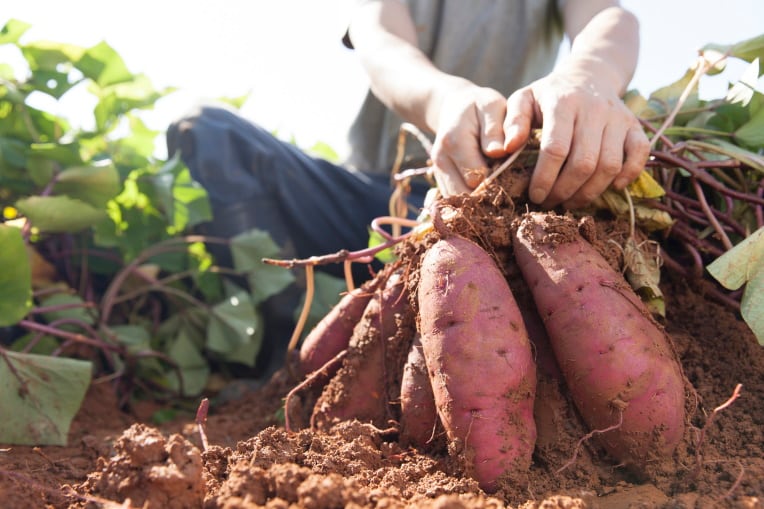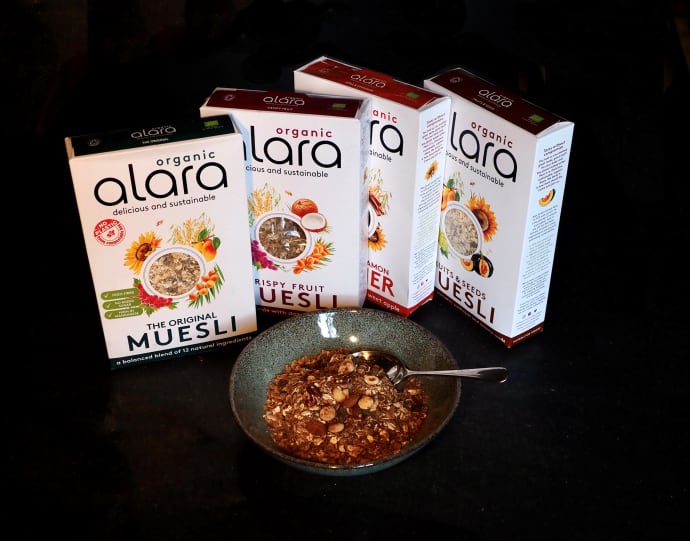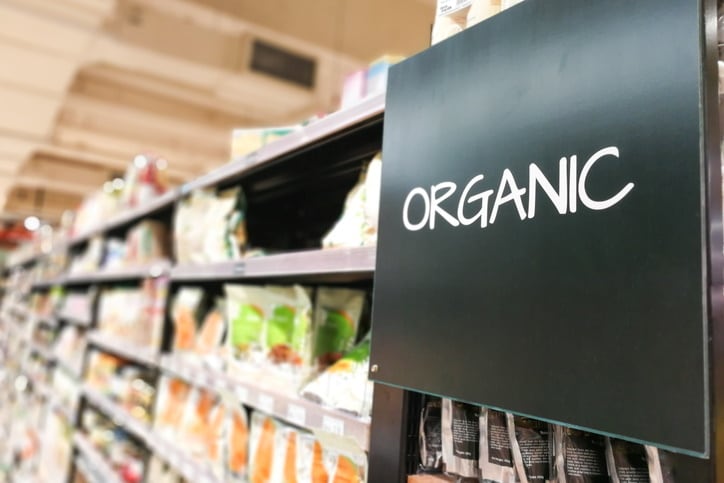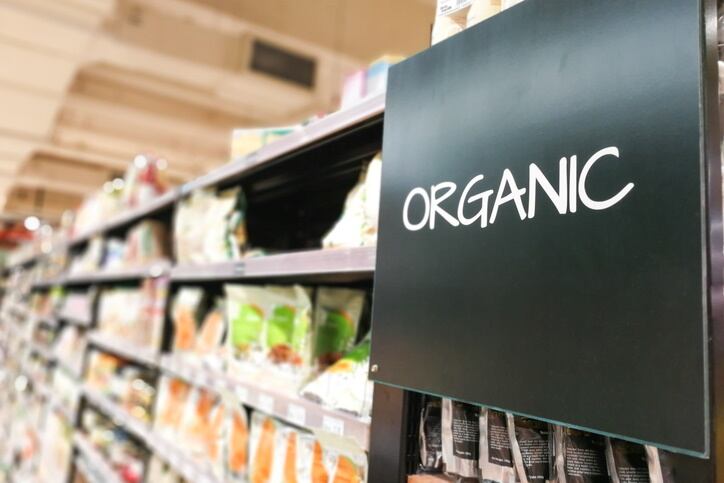The European market for organic food continues to grow. According to FiBL, the Research Institute of Organic Agriculture, sales reached €45bn in 2019 with a growth rate of 8% in the region. In the decade 2010-2019, the European market value has more than doubled, the organisation noted.
Increased farmland dedicated to organic production also follows this upward trajectory. Between 2010 and 2017, organic farmland increased by 70%, data from Eurostat demonstrates.
According to the European statistics agency, a ‘driving force’ for this growth has been the ‘relative high price premium that can be obtained by organic goods’.
Eurostat reports organic products can be up to 150% more expensive than comparable conventionally produced goods. This reflects a variety of factors, including higher production costs and lower yields. Eurostat noted the yield on organic farms – which varies significantly from crop-to-crop – can be as much as 40% to 85% lower than non-organic farms.

But these statistics could be misleading, Alara Wholefoods founder Alex Smith suggested. “As I see it, organic has a problem with perception more than reality. Many organic products are already very affordable if you do a direct comparison... I am sure it is possible to eat well organically for £2.50 a day per person though I appreciate this is quite a lot for some families.”
This direct comparison also doesn’t factor in the ‘true cost’ associated with conventional production. Smith believes that we need to look beyond the price tag to accurately compare the price of organic and non-organic foods.
“A key reason organic food seems to cost more is that for non-organic food many costs are externalized. So, the planet heating contribution from artificial fertilizer (10% of the total) is not included. The biodiversity loss is not included, the pesticides killing the human micro-biome is not included,” he told FoodNavigator.
“In the UK the main government policy driver is to make food cheap. If the true costs were included, non-organic food would be much more expensive.”
Organic food that doesn’t cost the earth
Alara is launching a new Affordable Organic range of mueslis to challenge the idea that organic food is expensive food. Affordability and accessibility were key goals during development of the new four-product strong range.
“Affordability is not often part of the organic conversation. That’s partly because the organic sector is engaged in an important debate to highlight the costs – to the environment and public health – of cheap food. But at Alara we want to show that organic is both good value and, in many cases, genuinely affordable. I believe we have a responsibility as a movement to make organic accessible to as many people as possible.”
With retail pricing at £2.70-£3.29 for a 650g pack, a 70g portion costs around 30p. “We think that’s a very affordable price for a nutritious breakfast made from high-quality organic and responsibly source ingredients,” Smith said.

How has the company been able to achieve this?
The decision to offer affordable organic does have a margin impact – but it's one Alara has been able to swallow, Smith revealed. “At Alara we are a well-established company and can operate at lower margins. We also have very good and long-standing supply partners, so we are able to pass on these benefits to customers with affordable prices.”
Indeed, the organic pioneer continued, close collaboration along the supply chain has been crucial. “A vital foundation, on which we are able to deliver affordable organic food, [is our] supply partners. We pay either before shipment or immediately on receipt of goods, so do not have creditors. As the starkest reality of business is cashflow, we believe we are helping engender a sustainable supply chain. Economic sustainability is one of Alara’s four pillars sustainability.”
Smith insisted that this model means delivering cheaper organic food does not come at the detriment of either production standards or livelihoods in the supply chain. Alaea’s Affordable range is underpinned by the principles and priorities the company has developed over its 45 years’ work in sustainable and organic food production.
“The Affordable Organic range brings together all of the values that underpin Alara’s businesses ethos, that we been developing over more than four decades. That includes our early commitment to organic, a business ethic founded on sustainability and fairness, being a zero waste and carbon neutral manufacturer and never compromising on quality and great taste. These are also the first Alara products to carry a Scope 3 carbon emission declaration on pack, and information about how we have been offsetting the embedded carbon in the products through our five-year partnership with Rainforest Saver,” Smith elaborated.




